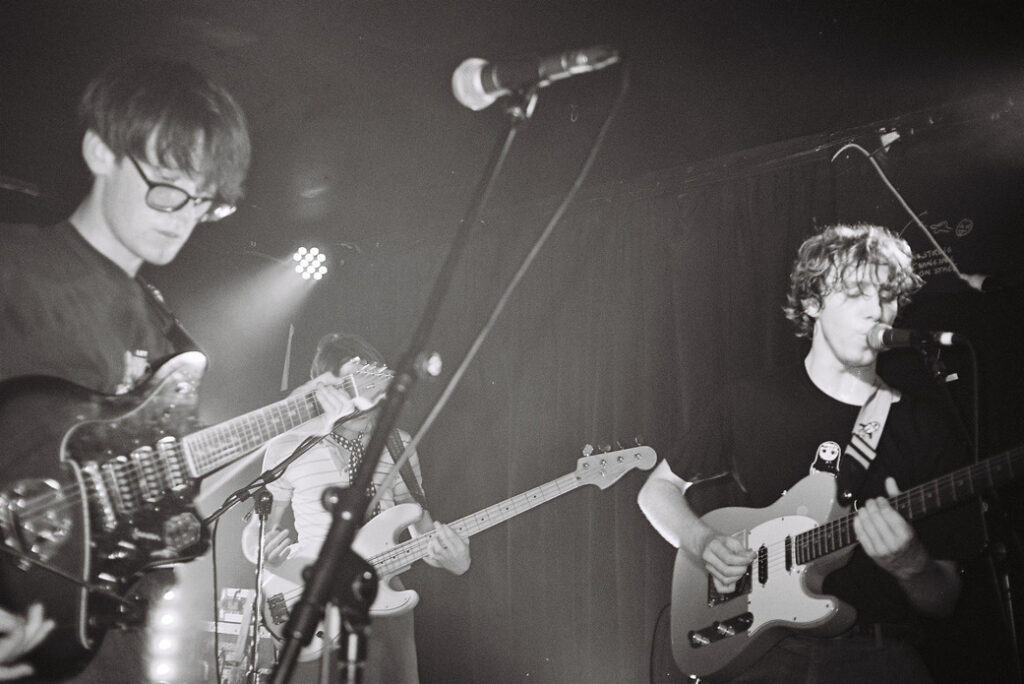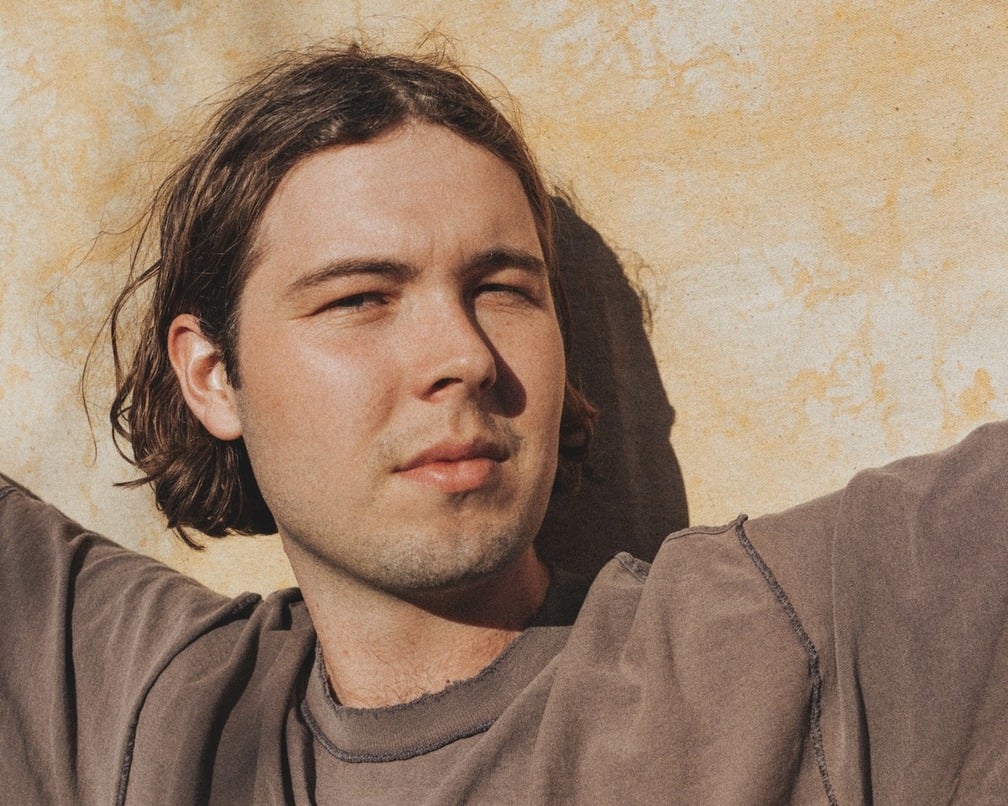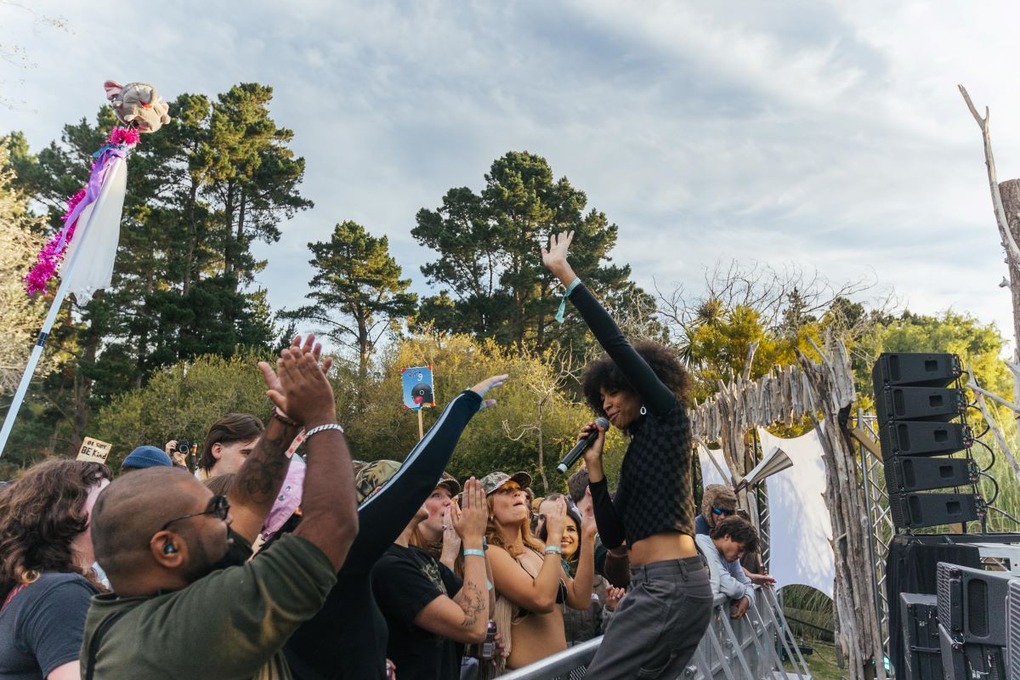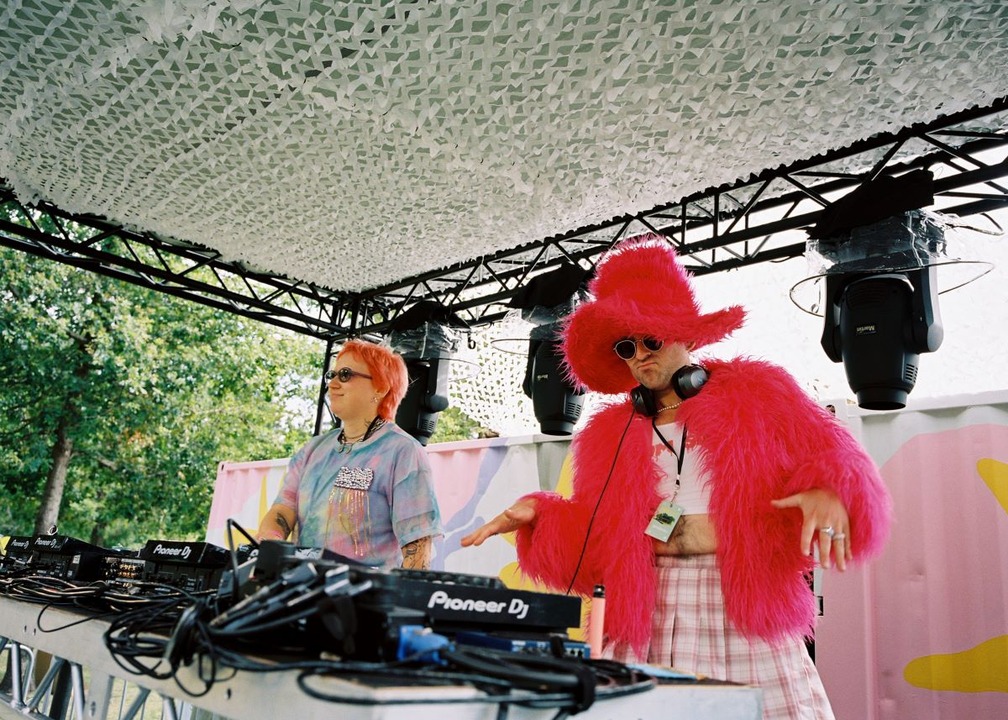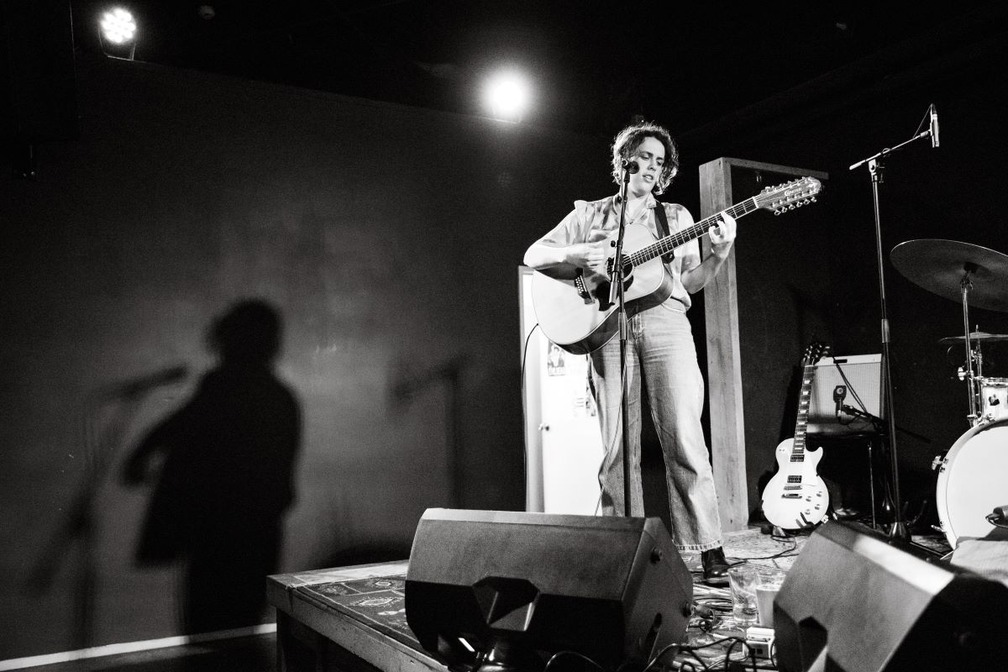Christchurch Reborn: How a Progressive Music Scene Is Changing the Conservative City
Surviving two devastating earthquakes, Ōtautahi has a music scene that's strong and fiercely resilient. Rolling Stone AU/NZ meets some of the people working tirelessly behind the scenes to make it all happen.
Ōtautahi Christchurch has a long-standing history of DIY music.
When I first heard Aldous Harding’s Party, I was perusing the CDs she’d left at a Lyttelton gift shop. I was walking to The Loons one night when I saw Marlon Williams singing through the window of a coffee shop. Friends in bands reminisce about nights at the New City Hotel, smoking in the courtyard beside Cassels Blue Smoke. I’ve heard stories about former venue Goodbye Blue Monday from my days at the student radio station, and tales about the old beer garden and restaurant Dux de Lux from my mother.
Many artists and bands have been raised on Canterbury’s grit. Roger Shepherd started the record label Flying Nun here in 1981, the same year The Exponents played their first residency at the Aranui Tavern. The Bats, French for Rabbits, Yumi Zouma, Delaney Davidson – exports, imports, and bands you only knew if you saw them live.
Surviving two devastating earthquakes, Ōtautahi has a music scene that’s strong and fiercely resilient. Pockets of indie rock, electronic, drum and bass, and folk can be found from the central city to the port town of Lyttelton.
Remains of the 2011 earthquake can still be seen in the red zone, but the rubble and ruin are slowly being replaced by street art and widespread development. Inner-city living is an enticing prospect again, as new pubs and cafes fill up spaces that were once abandoned between ’The Four Aves’.
And yet Ōtautahi is often overlooked by those who have left it or have never visited it.
Now, the next generation is trying to change that. They’re following tradition, but putting their own spin on it.
Love Music?
Get your daily dose of everything happening in Australian/New Zealand music and globally.
Queer spaces have been created to foster a community represented; DJs like Patella are emerging through record labels and collectives; artists and bands are producing their own music at an impressive rate.
Three venues, Space Academy, Darkroom, and Flux, have helped champion the changing landscape post-earthquake. No more than a few hundred metres away from each other, these venues have formed pockets where artists and DJs can cut their teeth on performing and live gigs.
“Shortly after the February 2011 earthquake, musician T’Nealle Worsley started renting the front unit of a textile factory at the industrial end of Saint Asaph Street, and started the DIY conversion into a creative hub known as The Archive. The space would include a record store and coffee shop, a gallery space, and a small music venue, called Darkroom,” Darkroom co-owner Feather Shaw explains.
“The multi-faceted arts venue would help to fill the void left behind after the earthquake caused the closure of so many creative spaces. When Darkroom first opened to the public in October 2011 the CBD red zone cordon was still a mere 200m down the road,” she adds.
Shaw and her business partner Nick Vassar bought Darkroom from sound engineer and live sound tutor Marcus Winstanley in 2019. With a strong history of supporting the local music community and hosting many up-and-coming artists such as Harding, Williams, and Nadia Reid, the venue has a strong reputation for providing an entry point for artists and bands to play their first gigs and secure a spot on the NZ touring circuit.
“We welcome local and touring musicians of all genres, experience, and ability levels to our stage,” Shaw says. “We often have gigs with such a mix of genres showcased in one night. Those are some of my favourite nights here.”
For the avid gig-goer in the central city, it’s easy to pop out of one show at Darkroom and cross the road for another. For the owners of Space Academy, it’s only fitting that a night out at Darkroom inspired them.
“We were a trio of best buds in our late 20s who met in high school with limitless plans and little idea of what we were taking on,” Meg Barnacle, co-owner of Space Academy, reflects.
“We spotted 371 Saint Asaph Street for lease on a night out at Darkroom, which was a spot we went to a lot. We connected with three friends who had dreams of their own and they subleased.”
Not long after, Miki, a friend of another co-owner Hamish Campbell, arrived on a plane from Tokyo to run Doki hair salon in the “tiny, street-facing, fish-bowl of a front room,” and friends Mirabel Oliver and Gareth Talbot ran daytime Kadett Cafe until its closure in 2019.
“[At the time], the ‘Four Aves’ were full of abandoned rubble but there were little sparks happening everywhere, and people were doing some really innovative shit.”
When Space Academy opened, it opened for everyone, Barnacle says, but covering the bills was tougher than anticipated. It was their friends turning up, bringing their mates, and buying stuff that kept them afloat for many years.
This atmosphere makes Ōtautahi a music scene led by community rather than industry, says indie singer-songwriter and music producer Will McGillivray. Under his solo project Goodwill, the musician has played at Space Academy as himself and with Jed Parsons, and also produced music for There’s a Tuesday, Mousey, Mim Jensen, and more.
Visiting Auckland for music in the past, McGillivray says there’s a certain energy tied to the music industry that can change your perspective on achievement.
“I feel like it rubs off on you, this thing when you’re making music but kind of keeping in mind the industry and aiming for certain things that might work on a certain radio station.”
Down here, though, he says he forgets all about that; whatever he’s made at the end of the day, he just hopes people will like it.
“[In Ōtautahi] we’re kind of in the middle of nowhere. You know, Antarctica is not that far from New Zealand… and we’re so far removed from somewhere like LA. But I really love that, the feeling like we’re tucked away and not in the limelight.”
With a handful of independent and DIY music labels in Ōtautahi like Melted Ice Cream and Echo Train Records, McGillivray feels the city is home to mostly musicians and fans of music rather than industry figures.
“I think it just allows people to really focus on the music, and not be too conscious all of the time of how it will be perceived in the industry,” he says.
Rising from the same generation are Corban Tupou and Dan Stewart, the co-founders of record label and electronic music festival Twominds. What started as a DIY online radio TV series out of Tupou and Stewart’s flat in Ilam soon became a two-stage flat party and then a collective, label, and now, festival. It was all inspired by a gap in the electronic music market – after all, Ōtautahi was well-known before the earthquake for its nightlife and dance music culture.
This was something that Flux, a venue on the corner of Saint Aspah and Madras Street, spotted too.
“When we were sticking our nose in, asking where to throw a gig, Flux management invited us and said they liked what we were doing,” Stewart says. “Hosting a gig at Flux crash-coursed us into learning and benefiting from their experience. Since then, it’s always been at Flux, because of the venue’s quality, intentions, and community.”
Flux co-owner Zak Cooper opened the venue with promoter Finn McCall just before COVID struck.
“It sounds cliché, but I’d just come back from Berlin,” Cooper explains. “I’d only spent a week there but it was enough to be like, ‘Whoa, this is what dance [music] could look like.’
“I was a DJ before the quakes, and I kind of knew the previous landscape and it was vibrant. I came from drum and bass, but my dad brought me up on heaps of weird, different cool stuff. I just wanted to see different music.”
Working within central city venues before opening Flux ignited a desire to see something unique. The “golden era of drum and bass” was over, and Cooper says the popular “strip” (a line of bar-turned-nightclubs offering vodka red bulls and pop remixes) became “gross” and needed some work. Flux would hold a different focus.
“We never planned from the start to host queer events or to host a place where people who felt they were on the fringe of white male society would have a place. But I think those things that we designed for others, it was those crowds who turned up, which was great,” he says.
While every gig brings different crowds, and the energy can still lean towards being laddish or “gnarly”, many feel the most welcome when they see themselves represented. Plus, Cooper and McCall made a point of calling out antisocial behaviour.
“It was a breath of fresh air,” McCall adds.
Kate.Land, a local DJ and bartender at Flux, joined the venue in 2021 as the driving force of welcoming queer and marginalised groups to the dancefloor. Leaving Christchurch in 2017 when it was a homophobic city, they returned in 2020 to spearhead collaborative queer nights Queer Horizons and Tender Buttons. It wouldn’t be long until the city’s only gay bar would be called out for being transphobic; Kate.Land’s timing to set up a new initiative was serendipitous.
“It’s about being unapologetically queer. It’s the little nod you get from the teenager down the street, or seeing people snogging at parties or wearing a tiny little tank top or dressed up,” they say.
“Queerness isn’t just for queer people, it’s a break away from patriarchy, a break away from the heteronormative constraints that are put on us. It gives everybody a bit of freedom.”
Hosting multiple gigs a week, Flux sees many local and international acts through its doors. Behind the bar, Kate.Land claims Ōtautahi is often said to be one of the artist’s favourite audiences.
“They’ve said that they enjoy that it’s a little bit underground, that [Flux] it’s smaller and it’s intimate. We’re still a bit analogue, [and] we’re low budget.”
Similar to Darkroom and Space Academy, these venues are powered by the communities congregating within them. And while there may be potential challenges in the future, such as navigating noise control in inner-city residential living, Barnacle says a key value of Space Academy is that all are welcome.
“We want more people gathering together to experience cool shit. It’s bloody hard getting people uncomfortable these days. Big money has us all pinned right where they want us, at home, cosy on the couch with TV on demand and dinner on the doorstep.
“We left Wellington because they didn’t need our lofty dreams there. It was a fantastic place to be in our 20s. Pōneke has areas like Cuba Street where the housing is stacked up above the bars. It’s not always smooth sailing but it’s magic.”
Shaw says the conversation with the local council is an ongoing one.
“We have been working with Christchurch City Council towards implementing a variety of regulatory and non-regulatory initiatives, and while work is still ongoing, there has been positive progress already. We are excited to continue to work together with our neighbouring venues, our advocacy group Save Our Venues, and the Christchurch City Council to find solutions for businesses and communities like ours to exist in harmony with new residents.”
For Twominds’ founders Tupou and Stewart, they love the wide open spaces on the city’s fringe. There’s no other place they’d rather host a festival than right next to the ocean, with 30 minutes access to the central city.
“We wanted to take all the inspiration for all the festivals that we’ve experienced and create our own version in our own backyard,” Tupou explains. “We decided to have it in Christchurch because it’s home, because it’s where we’ve always done everything,” Stewart adds.
Kate.Land, who DJ’d on the Flux stage at Twominds Festival this year, says Christchurch will always hold a special place in their heart.
“People aren’t doing it for the fame and the glory. People are doing it, because they desperately really, really want to express themselves creatively.
“That’s the deeper magic,” they say.


































